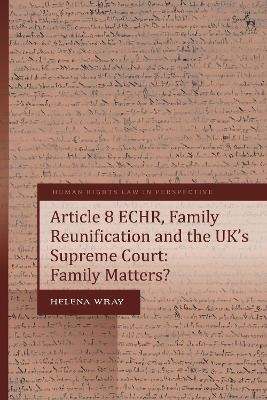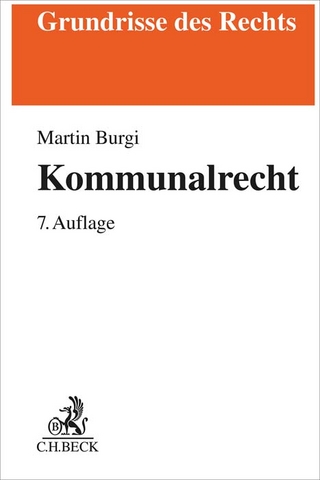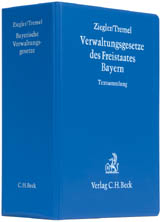
Article 8 ECHR, Family Reunification and the UK’s Supreme Court
Hart Publishing (Verlag)
978-1-5099-6607-3 (ISBN)
The book explains how the European Court of Human Rights jurisprudence has developed in recent years, but, particularly in the absence of children, it often still awards little weight to claims by citizens and residents to be joined by family when immigration status is an issue. This reflects governments’ resistance to encroachment on their control over borders. The Supreme Court decisions show that, despite powers conferred by the Human Rights Act, a more nuanced position in domestic law was difficult to articulate and sustain. The book explores the way in which these problems were reflected in the changing language, argumentation, and structure of judgments. These problems revealed judges to be strategic actors drawing on personal and institutional values and responding to the shifting political context.
A more generous reading of Article 8 would be legally coherent but needs wider societal support to be realisable. The book ends with a discussion of how, if such support were present, the jurisprudence could give more weight to the needs of families. It is vital reading for anyone interested in families and immigration, and in the problems and potential of human rights adjudication.
Helena Wray researches and teaches Migration Law at the University of Exeter, UK
1. Introduction: Family Reunification, Human Rights and Judges
I. About the Book
II. Chapter Outline
III. Family Reunification
IV. Human Rights and Family Life
V. Judges
VI. Methodology
2. Introduction to the UK’s Constitutional, Court and Immigration System
I. Introduction
II. The UK’s Legal and Constitutional Framework
III. The Human Rights Act 1998
IV. Regulating Family Reunification in the UK
V. The Immigration Control Framework in the UK
VI. Appeals and the Court System
VII. Conclusion
3. The European Court of Human Rights: Strait is the Gate
I. Introduction
II. Why is Family Reunification and Article 8 So Problematic?
III. Article 8(1): Family Life
IV. Article 8(2) Proportionality 1: Immigration Controls, Positive Obligations and the Margin of Appreciation
V. Article 8(2) Proportionality 2: Fair Balance
VI. Conclusion
4. Huang: Breathing Life into Article 8
I. Introduction
II. The Immigration Battleground
III. A Sense of Judicial Purpose
IV. The Legal Problem Addressed by Huang
V. The Legal Findings in Huang
VI. ‘Human Beings are Social Animals’
VII. The Aftermath of Huang
VIII. The Signifi cance of Huang and its Limits
IX. Conclusion
5. ‘Good News from on High’: The First Post-Huang Phase
I. Introduction
II. Beoku-Betts: Including All the Family
III. Chikwamba: Applying In-Country or Abroad
IV. EB (Kosovo): Delay, Proportionality and Reinforcing Huang
V. Reflections on the First Phase Decisions
VI. Conclusion
6. Still Family First: The Second Post-Huang Phase
I. Introduction
II. Baiai: The Right to Marry
III. Mahad: Third Party Support
IV. ZH (Tanzania): The Best Interests of Children
V. Quila: Forced Marriage and the Minimum Age for Sponsorship or Entry
VI. A Complex Relationship with Article 8
VII. Conclusion
7. The Supreme Court Rolls Back: The Third Post-Huang Phase
I. Introduction
II. A New Background
III. Ali and Bibi: Pre-entry Language Testing 0
IV. MM (Lebanon): The Minimum Income Requirement
V. Agyarko: Regularisation and Precariousness
VI. Reflections on the Third Phase Decisions
VII. Reflections on Huang and the Three Phases
VIII. Conclusion
8. A Better Article 8 is Possible
I. Introduction
II. Why Human Rights?
III. Stick or Twist? The Case for Treating Family Reunification as a Positive Obligation
IV. Family Life Beyond the ‘Core’ Family
V. The Public Interest 1: The ‘General Interest’ and Family Life
VI. The Public Interest 2: Immigration Control
VII. Precarious Residence and Exceptionality
VIII. Sponsors and Citizenship
IX. Family Life and Immigration: The New Approach in Practice
X. Conclusion
9. Concluding Remarks
I. Introduction
II. The Impact of Article 8 on Immigration Policy
III. The Supreme Court as a Moral and Political Actor
IV. A Coherent Legal Interpretation of Article 8
V. Final Words: Making Family Matter
| Erscheinungsdatum | 20.02.2023 |
|---|---|
| Reihe/Serie | Human Rights Law in Perspective |
| Verlagsort | Oxford |
| Sprache | englisch |
| Maße | 156 x 234 mm |
| Themenwelt | Recht / Steuern ► EU / Internationales Recht |
| Recht / Steuern ► Öffentliches Recht ► Besonderes Verwaltungsrecht | |
| Recht / Steuern ► Öffentliches Recht ► Verfassungsrecht | |
| Recht / Steuern ► Privatrecht / Bürgerliches Recht ► Familienrecht | |
| ISBN-10 | 1-5099-6607-2 / 1509966072 |
| ISBN-13 | 978-1-5099-6607-3 / 9781509966073 |
| Zustand | Neuware |
| Informationen gemäß Produktsicherheitsverordnung (GPSR) | |
| Haben Sie eine Frage zum Produkt? |
aus dem Bereich


